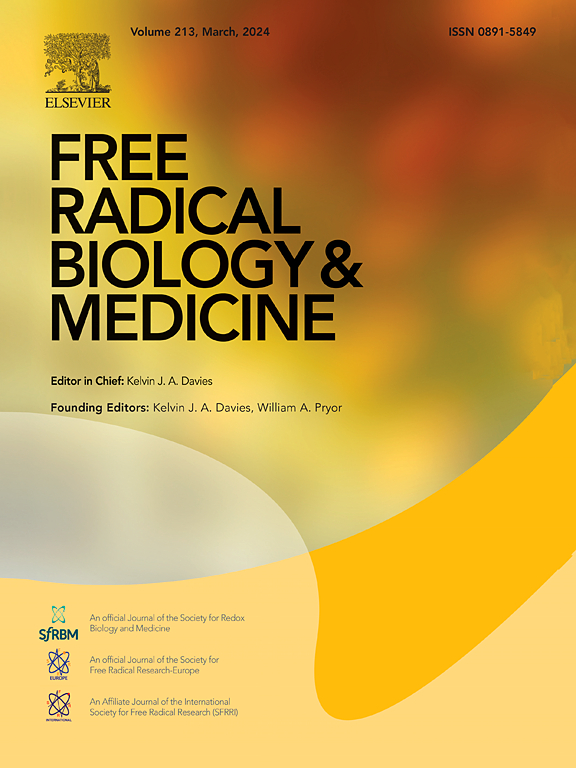Redox biology at the intersection of physical activity and air pollution: Mechanisms, consequences, and complexity
IF 8.2
2区 生物学
Q1 BIOCHEMISTRY & MOLECULAR BIOLOGY
引用次数: 0
Abstract
Air pollution and physical inactivity are leading contributors to the global burden of chronic disease and premature mortality. While exercise is a well-established stimulus for physiological adaptations and disease prevention, it also transiently increases reactive oxygen species (ROS) production, which function as essential signals for metabolic remodeling and cellular resilience. In contrast, exposure to air pollution, specifically fine particulate matter (PM2.5), leads to sustained and uncontrolled ROS production, promoting oxidative damage, inflammation, and cardiometabolic dysfunction.
This review examines a critical and under-investigated question: How does exercising in polluted environments affect the redox signaling pathways that mediate the health benefits of exercise? We summarize current knowledge at the intersection of exercise physiology, redox biology, and environmental toxicology, with a particular focus on the roles of ROS sources, the scavenger system, and downstream physiological responses. By integrating findings from human and animal studies, we identify factors such as air pollution sources and level of exposure, exercise intensity, and age that shape redox outcomes. We also identify key knowledge gaps to clarify how context-specific redox responses determine whether exercise promotes adaptation or exacerbates pollution-related harm, providing essential insights for future mechanistic research and evidence-based public policies.
身体活动和空气污染交叉的氧化还原生物学:机制、后果和复杂性。
空气污染和缺乏身体活动是造成全球慢性病负担和过早死亡的主要原因。虽然运动是一种公认的生理适应和疾病预防的刺激,但它也会短暂地增加活性氧(ROS)的产生,而活性氧是代谢重塑和细胞恢复能力的重要信号。相比之下,暴露于空气污染,特别是细颗粒物(PM2.5),会导致持续和不受控制的活性氧产生,促进氧化损伤、炎症和心脏代谢功能障碍。这篇综述探讨了一个关键的和未被研究的问题:在污染环境中运动如何影响介导运动健康益处的氧化还原信号通路?我们总结了当前运动生理学、氧化还原生物学和环境毒理学交叉领域的知识,特别关注活性氧来源、清道夫系统和下游生理反应的作用。通过整合人类和动物研究的结果,我们确定了影响氧化还原结果的因素,如空气污染源和暴露水平、运动强度和年龄。我们还确定了关键的知识缺口,以阐明特定环境的氧化还原反应如何决定运动是促进适应还是加剧污染相关危害,为未来的机制研究和基于证据的公共政策提供重要见解。
本文章由计算机程序翻译,如有差异,请以英文原文为准。
求助全文
约1分钟内获得全文
求助全文
来源期刊

Free Radical Biology and Medicine
医学-内分泌学与代谢
CiteScore
14.00
自引率
4.10%
发文量
850
审稿时长
22 days
期刊介绍:
Free Radical Biology and Medicine is a leading journal in the field of redox biology, which is the study of the role of reactive oxygen species (ROS) and other oxidizing agents in biological systems. The journal serves as a premier forum for publishing innovative and groundbreaking research that explores the redox biology of health and disease, covering a wide range of topics and disciplines. Free Radical Biology and Medicine also commissions Special Issues that highlight recent advances in both basic and clinical research, with a particular emphasis on the mechanisms underlying altered metabolism and redox signaling. These Special Issues aim to provide a focused platform for the latest research in the field, fostering collaboration and knowledge exchange among researchers and clinicians.
 求助内容:
求助内容: 应助结果提醒方式:
应助结果提醒方式:


